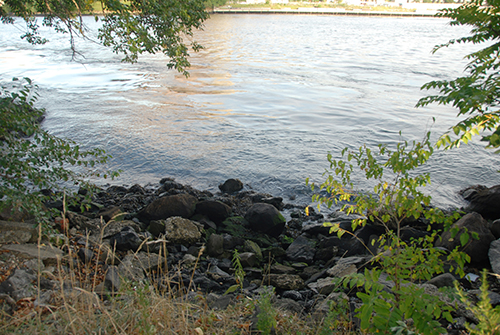Supreme Court Limits EPA’s Authority to Regulate Wetlands
On May 25, 2023, the Supreme Court handed down a ruling to Idaho property owners that will affect the United States as a whole, with the potential to limit the United States Environmental Protection Agency’s (EPA) ability to regulate certain wetlands under the provisions of the Clean Water Act of 1972 (CWA). This ruling has the potential to greatly affect future land development and use.
How did we get here?
The CWA provided a framework for regulating pollutant discharges into water bodies and the protection of surface water quality. At this time, the water bodies protected under the CWA were those considered “waters of the United States” (WOTUS), which is not explicitly defined in the CWA; rather, the EPA and United States Department of the Army were provided authority to define this term in regulations.
Following the provisions discussed above, there have been several Supreme Court cases and rulings since the passing of the CWA regarding which bodies of water were covered as WOTUS. For example, United States v. Riverside Bayview Homes, Inc. (1985) decided that wetlands adjacent to navigable waters shall fall under the WOTUS definition. Rapanos v. United States (2006) ruled that wetlands regulated as WOTUS must have a continuous or otherwise significant surface connection to navigable waters.
In 2015, President Barack Obama issued a ruling regarding what constitutes WOTUS, giving the EPA increased power; this ruling was replaced by President Trump’s 2020 ruling which had the opposite effect. Lastly, the Biden administration ultimately implemented a rule which restored greater authority to the EPA.
Sackett v. EPA
Michael and Chantell Sackett, property owners in Priest Lake, Idaho, were developing a piece of land in 2007 when the work was halted by the EPA, stating that the lot contained a federally protected wetland. This case eventually made it to the Supreme Court of the United States (SCOTUS) in 2021, with arguments beginning in October 2022, as the work remained in limbo. The Sacketts and their legal representation argued that the wetland on the subject property should not be considered WOTUS, since the wetland did not continuously connect to other bodies of water. On May 25, 2023, the SCOTUS ruled on a 5-4 majority with an opinion by Justice Alito in favor of the Sacketts, which was ultimately concurred upon by the remainder of the justices.
What are the potential implications of the ruling?
The SCOTUS ruling has the potential to greatly reduce the federal government’s ability to regulate and protect wetlands under the CWA. This may cause a significant increase in property and infrastructure development in areas previously under federal protection, opening up the possibility for further disturbance of natural habitats.
Reach out to Walden today at 516-758-1273 to learn more about how this ruling may affect your property.

Contact Walden at 516-758-1273 if you have questions about how this proposed rule could impact operations at your land.
